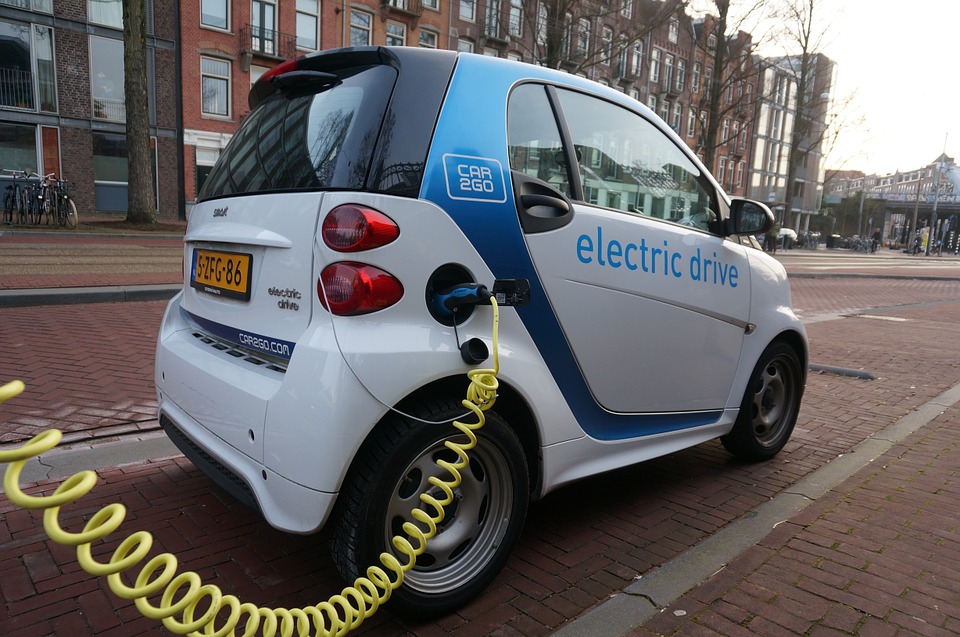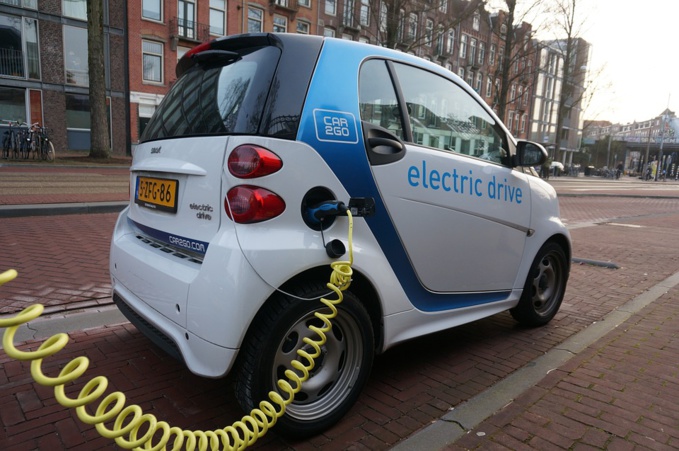The market of electric vehicles is one of the fastest growing. In 2017, for example, only in the US sales of cars powered by electricity increased by almost 30% and came close to 200 thousand. The US is taken for example not only because it is the first economy of the planet. The spurt of electric cars is even more impressive, considering the very low prices for gasoline in America, which, it would seem, should support traditional cars with internal combustion engines.
Of course, measures for popularization of EV, undertaken by governments of different countries, largely contribute by the increase in their popularity, reminds Forbes. Authorities for air purification across all continents are developing laws on the gradual ban on traditional cars. China, India, Britain, France and the Netherlands intend to clean streets of cities from traditional and diesel cars over the next few decades. The measures taken by the authorities, of course, have an impact on the predilections of motorists, who are increasingly giving preference to electric cars over traditional cars. An example for imitation in this area is Norway, where every third car sold in the last year was powered by electricity.
In the long run, as you might guess, everything depends on money. The success of electric vehicles should ensure a continuous reduction in prices for them and increase the distance that can be traveled on a single charge. As for prices, this is especially true for batteries.
According to Bloomberg New Energy Finance, the future of electric vehicles is promising: "By 2040, 54% of new car sales and 33% of the world park will be powered by electricity. Reducing the price of batteries will allow quite competitive electric vehicles to penetrate all sectors of the car industry by 2030".
Of course, electric cars have not only advantages. Fans of electric cars accidentally or purposely forget that they do not travel by air, but by electricity, most of which in both the US and the rest of the world is produced mainly by burning coal and gas. A car’s owner often needs a whole night to charge an electric car at home. A New York Times study suggests that electric vehicles can increase household energy consumption by 50% or even more. Sometimes the addition of an electric vehicle to the power grid, Forbes writes, is equivalent to the connection of three houses. Of course, authorities are trying to reduce the load on the grid, but the conclusion is clear: in the United States and the rest of the planet, every ten charges of electric vehicles in 6.5 cases are about electricity generated from coal or gas.
China intends to ban all cars with internal combustion engines and replace them with electric vehicles, but this will lead to increased consumption of coal. The share of coal in the country accounts for almost 70% of all electricity. In India, this figure is even higher - 75%.
In general, Forbes believes, one can safely say that electric vehicles mean a very significant increase in the consumption of electricity by mankind. Moreover, it will be provided mainly with coal and gas. It is expected that global electricity consumption will grow by 1-3% per year. It turns out that instead of cleaning the air, cars running on electricity will simultaneously contaminate it.
source: forbes.com, bloomberg.com
Of course, measures for popularization of EV, undertaken by governments of different countries, largely contribute by the increase in their popularity, reminds Forbes. Authorities for air purification across all continents are developing laws on the gradual ban on traditional cars. China, India, Britain, France and the Netherlands intend to clean streets of cities from traditional and diesel cars over the next few decades. The measures taken by the authorities, of course, have an impact on the predilections of motorists, who are increasingly giving preference to electric cars over traditional cars. An example for imitation in this area is Norway, where every third car sold in the last year was powered by electricity.
In the long run, as you might guess, everything depends on money. The success of electric vehicles should ensure a continuous reduction in prices for them and increase the distance that can be traveled on a single charge. As for prices, this is especially true for batteries.
According to Bloomberg New Energy Finance, the future of electric vehicles is promising: "By 2040, 54% of new car sales and 33% of the world park will be powered by electricity. Reducing the price of batteries will allow quite competitive electric vehicles to penetrate all sectors of the car industry by 2030".
Of course, electric cars have not only advantages. Fans of electric cars accidentally or purposely forget that they do not travel by air, but by electricity, most of which in both the US and the rest of the world is produced mainly by burning coal and gas. A car’s owner often needs a whole night to charge an electric car at home. A New York Times study suggests that electric vehicles can increase household energy consumption by 50% or even more. Sometimes the addition of an electric vehicle to the power grid, Forbes writes, is equivalent to the connection of three houses. Of course, authorities are trying to reduce the load on the grid, but the conclusion is clear: in the United States and the rest of the planet, every ten charges of electric vehicles in 6.5 cases are about electricity generated from coal or gas.
China intends to ban all cars with internal combustion engines and replace them with electric vehicles, but this will lead to increased consumption of coal. The share of coal in the country accounts for almost 70% of all electricity. In India, this figure is even higher - 75%.
In general, Forbes believes, one can safely say that electric vehicles mean a very significant increase in the consumption of electricity by mankind. Moreover, it will be provided mainly with coal and gas. It is expected that global electricity consumption will grow by 1-3% per year. It turns out that instead of cleaning the air, cars running on electricity will simultaneously contaminate it.
source: forbes.com, bloomberg.com



















